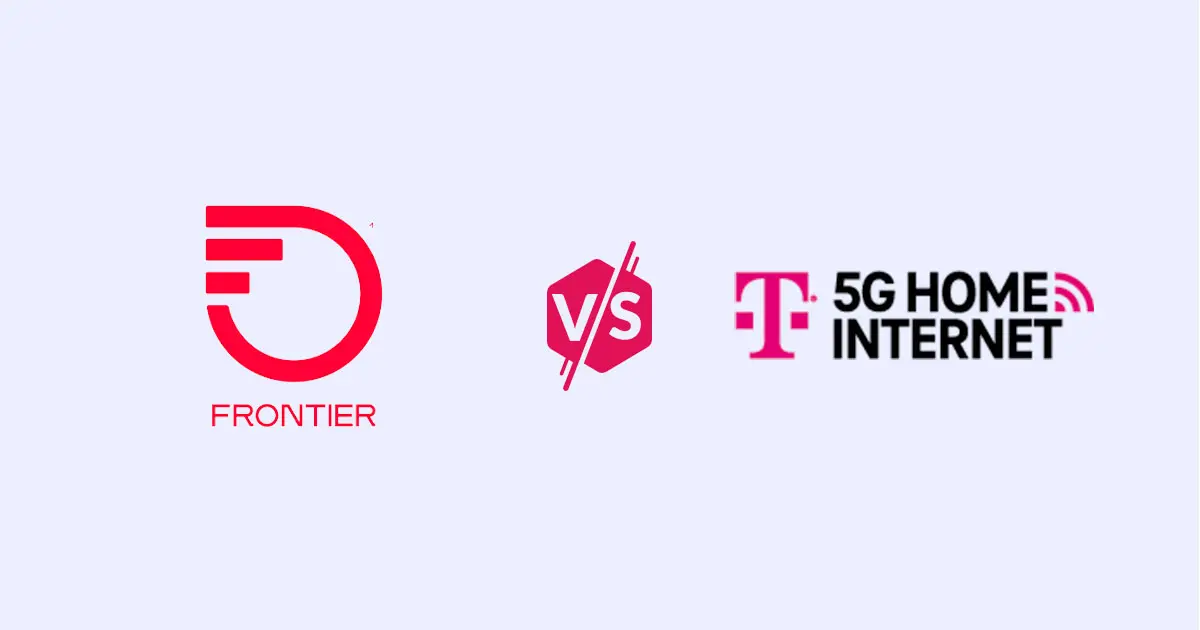Spectrum vs. Cox: Which Internet Provider is Best for You?
Spectrum plans offer good value and great perks, while Cox delivers top-notch customer experience.
Jul 8, 2024 | Share
Brand Guides
-
Best for Flexibility
- Customer rating: 3.7 / 5
- Price: $24.99–$79.99/mo.*†‡
- Speed: 50Mbps–1,000Mbps(wireless speeds may vary)
- Internet type: Cable, fiber
-
Best for Customer Experience
- Customer rating: 3.7 / 5
- Price: $50.00–$150.00/mo.§||
- Speed: 100Mbps–2,000Mbps
- Internet type: Cable, fiber
* No contract required. Available in select areas only. For qualifying households only. Availability of offer is based on income eligibility. Go to Spectrum.com/internet/spectrum-internet-assist for additional details.
† For 12 months when bundled. Limited time offer; subject to change; valid to qualified residential customers who have not subscribed to any services within the previous 30 days and who have no outstanding obligation to Charter. Taxes, fees and surcharges extra and subject to change during and after the promotional period; installation/network activation, equipment and additional services are extra.
‡ For 24 months when bundled. Limited time offer; subject to change; valid to qualified residential customers who have not subscribed to any services within the previous 30 days and who have no outstanding obligation to Charter.
§ for 12 months with 1-yr. term agreement.
|| No annual contract or cancellation fees.
Compare Cox and Spectrum head to head
Spectrum plans provide more internet speed for the money and come with faster speeds and nice perks, like free rental modems and no data caps. Cox gives customers more plans to choose from and received higher ratings in our annual customer satisfaction survey, especially for price and customer service.
It’s unlikely that you’d need to choose between Cox and Spectrum because they share almost no coverage area. Comparing these cable ISP giants provides useful context for gauging the quality and value of the internet service you’re considering. Ultimately, Spectrum’s value, flexible data, and contract policies make it the better deal for most customers.
Pros and cons: Spectrum vs. Cox
 Pros:
Pros:
- No contracts
- No data caps
- More speed for the money
- Free modem rental
 Cons:
Cons:
- No low-cost options
- Monthly WiFi charge
- Price hikes after 12 months
 Pros:
Pros:
- Lots of bundling options
- More plan variety
- Higher customer ratings
 Cons:
Cons:
- Expensive plans and bundles
- Extra cost for month-to-month option
- Data caps
Want to know if you can get Spectrum or Cox?
Enter your zip code below to find out.
Plans and pricing: Spectrum vs. Cox
Spectrum plans generally offer more speed for the money than Cox and come with awesome perks like unlimited data and a free rental modem. Cox’s has more variety, including more mid-tier options. Unfortunately, both of these ISPs introduce price hikes, typically after the first 12 months.
Spectrum plans and pricing
| Package | Price | Speed | Details |
|---|---|---|---|
| Spectrum Internet® Assist | $24.99/mo.* | Up to 50Mbps (wireless speeds may vary) | View Plans |
| Spectrum Internet® 100 | $29.99/mo.* | Up to 100Mbps (wireless speeds may vary) | View Plans |
| Spectrum Internet® | $39.99–$49.99/mo.† for 12 mos. | Up to 300Mbps (wireless speeds may vary) | View Plans |
| Spectrum Internet® Ultra | $49.99–$69.99/mo.‡ for 24 mos. | Up to 500Mbps (wireless speeds may vary) | View Plans |
| Spectrum Internet® Gig | $59.99–$79.99/mo.‡ for 24 mos. | Up to 1,000Mbps (wireless speeds may vary) | View Plans |
* No contract required. Available in select areas only. For qualifying households only. Availability of offer is based on income eligibility. Go to Spectrum.com/internet/spectrum-internet-assist for additional details.
† For 12 months when bundled. Limited time offer; subject to change; valid to qualified residential customers who have not subscribed to any services within the previous 30 days and who have no outstanding obligation to Charter. Taxes, fees and surcharges extra and subject to change during and after the promotional period; installation/network activation, equipment and additional services are extra.
‡ For 24 months when bundled. Limited time offer; subject to change; valid to qualified residential customers who have not subscribed to any services within the previous 30 days and who have no outstanding obligation to Charter.
Spectrum plans bring fast speeds for the money. We like the Spectrum Internet® plan, which delivers up to 300Mbps for only $49.99 per month for 12 months. That’s a good speed price for most households.
Additionally, Spectrum plans feature unlimited data and a free cable modem—two things that cost extra with most providers, including Cox. On the downside, you’ll see a price increase of up to $25 per month after the first or second year—which is better than other cable internet providers, like Astound Broadband and Optimum.
Cox plans and pricing
| Package | Price | Speed | Details |
|---|---|---|---|
| Cox Go Fast | $50.00/mo.* | 100Mbps | View Plans |
| Cox Go Faster | $70.00/mo.* | 250Mbps | View Plans |
| Cox Go Even Faster | $90.00/mo.† | 500Mbps | View Plans |
| Cox Go Super Fast | $110.00/mo.* | Up to 1,000Mbps | View Plans |
| Cox Go Beyond Fast | $150.00/mo.* | Up to 2,000Mbps | View Plans |
* for 12 months with 1-yr. term agreement
† No annual contract or cancellation fees.
Some Cox plans offer slower speeds compared to similarly priced Spectrum plans, but customers have more plans to choose from. The Cox Go Fast plan is the most affordable, but 100 Mbps is only enough speed for one or maybe two-person households. At the same price, Spectrum offers three times as much speed.
The best all-around option is the Cox Go Faster plan, delivering 250Mbps for $70.00—that’s enough speed for most households. Like Spectrum, Cox also introduces price hikes after the promotional period ends, which is typically after 12 months. The rate increases vary per plan but average at about $21 more per month.
Cox low-cost internet plans
Cox has two great low-cost internet plans for individuals and families receiving government assistance:
ConnectAssist package : up to 100Mbps for individuals receiving government assistance.
Connect2Compete package : up to 100Mbps for families with children K-12 receiving government assistance.

Deals and promotions: Spectrum vs. Cox
| Get the Deal |
Save $15 per month when you bundle internet service with Cox Mobile. Internet service includes free Wi-Fi gear for the first two years. |
| Get the Deal |
Want a closer look at deals in your area?
Enter your zip code below to see what kind of deals Spectrum or Cox offers where you live.
Extra fees: Spectrum vs. Cox
Spectrum is the clear winner when it comes to equipment and installation costs. You don’t pay a dime to use Spectrum’s cable modem or gateway, but WiFi is a monthly $7 charge whether you use Spectrum’s gateway or its standalone router.
For installation, Spectrum encourages new customers to use the self-install kit, which includes the activation fee. You can get a professional install if needed, costing you half of what you would pay to Cox.
Customer ratings: Spectrum vs. Cox
Cox received higher ratings in our annual customer satisfaction survey. Cox customers were clearly happier with the pricing and Cox’s customer service when compared to Spectrum customers. But Spectrum still received good ratings, always placing in the top half in every category, and the majority of Spectrum customers reported being happy with their internet service.
Best TV and internet bundles
| Internet speed | TV channels | Price | Details | |
|---|---|---|---|---|
| Spectrum Internet + TV Select | Up to 300Mbps (wireless speeds may vary) | 155+ | $119.98/mo.* for 12 mos. | View Plans |
| Cox Go Fast + Contour TV Starter | 100Mbps | 75+ | $111.00† | View Plans |
| Cox Go Faster+ Contour TV Preferred | 250Mbps | 170+ | $185.00† | View Plans |
| Cox Go Super Fast + Contour TV Starter | 1,000Mbps | 75+ | $171.00† | View Plans |
| Cox Go Beyond Fast + Contour TV Starter | 2,000Mbps | 250+ | $211.00† | View Plans |
* Limited time offer; subject to change; valid to qualified residential customers who have not subscribed to any services within the previous 30 days and who have no outstanding obligation to Charter.
†Prices include applicable monthly recurring service fees and applicable discounts. Excludes charges for existing Cox services. Additional one-time charges, activation fees and monthly equipment fees may apply. Prices do not include applicable taxes, usage-based charges, fees, and surcharges, which are subject to change. Prorated charges may appear on your bill if you change services before the bill cycle is complete.
Spectrum doesn’t provide the traditional TV and internet bundle at a discount. Instead, you can pair any one of Spectrum’s TV services with any internet service—each one has a discounted price for the first 12 months. The monthly broadcast TV service is an extra charge, as is any additional standard and premium channel you add.
Cox’s offers bundles, but, like Spectrum, there’s no discount. Cox’s bundles tend to include more channels, but they’re significantly more expensive.
Internet types: Spectrum vs. Cox
| Internet type | Details | |
|---|---|---|
|
| Cable, fiber | View Plans |
|
| Cable, fiber | View Plans |
Both Spectrum and Cox are primarily cable ISPs, which means they use coaxial cables to deliver internet services to your home. Cable internet is generally an excellent service with wide availability. It’s much better than DSL and capable of extremely fast gigabit speeds.
The big drawback with cable internet is its slower upload speed, which is usually only about a tenth of the download speed. Nearly everything we do online is download-intensive, so a slower upload speed isn’t a huge problem for most customers.
Both Cox and Spectrum offer fiber internet in select areas, but availability is extremely limited.
Data caps: Spectrum vs. Cox
| Data Cap | Overage fee | Details | |
|---|---|---|---|
|
| No cap | N/A | View Plans |
|
| 1.25TB | $10/mo., 50GB over data cap | View Plans |
Spectrum has no data cap. You can download, stream, and browse all you want without worrying about overage fees or running over your limit.
While Cox does have a data cap, it’s pretty high at 1.25 TB. That’s more than enough for your average household. But can’t just forget about your data limit like you can with Spectrum. If you go over, Cox will charge you $10 for every 50 GB you go over, with a max of $100 in overage fees per month. You can still get unlimited data with Cox, but it costs an extra $50 a month.
Contracts: Spectrum vs. Cox
| Contract length | Details | |
|---|---|---|
|
| View Plans | |
|
| View Plans |
Spectrum doesn’t have the standard annual contract, but you must use the service for at least a month to get the introductory price. You can get the same no-contract experience with Cox, but you pay an extra $10 each month. Most Cox plans have the typical one- or two-year contract if you want the cheaper price.
Installation: Spectrum vs. Cox
| Installation options | Details | |
|---|---|---|
|
| View Plans | |
|
| View Plans |
Spectrum’s pro install fee is half of Cox’s. Even better, if you try a $24.99 self-installation but end up needing a pro install, Spectrum will waive the $59.99 install fee. Cox offers a self-install kit as well, but there’s no getting out of the hefty $100 installation fee if you do end up needing a technician.
So on the one hand, Spectrum does charge for self-install but gives you a safety net if you end up needing help. But Cox offers totally free self-install, which is great if you’re confident you can set things up yourself.
Availability: Spectrum vs. Cox
Spectrum and Cox are two of the biggest cable ISPs in the country and have sizable coverage areas spread all over the US. These two ISPs don’t share many coverage areas though, so your chances of having access to both are very slim.
Ready to switch to Spectrum or Cox?
Enter your zip code below to see if one of these internet providers is available where you live.
Final call: Spectrum vs. Cox
Spectrum is the better choice for most customers. Spectrum internet plans offer more speed for the money, plus unlimited data and a free rental modem. Spectrum really is unique in the flexibility and perks it gives to its customers that, in many ways, provide superior service than other cable ISPs.
Our verdict here doesn’t mean Cox isn’t a good ISP. Cox customers enjoy fast and reliable service from one of the nation’s top cable internet providers. But when comparing the two, Cox’s offerings are just not as remarkable as Spectrum’s.
You can get fantastic broadband service from either provider, so it really comes down to what’s available to you.
View Spectrum PlansView Cox Plans
Methodology
Our HighSpeedInternet.com editorial team bases our analyses on customer input from our annual customer satisfaction survey, results from our speed test tool, and proprietary internet provider data on speeds and pricing. To strengthen our research, we look closely at provider contracts to get hard-to-find information on price hikes, data caps, and extra fees, and we keep tabs on the latest news reports and online reviews. When applicable, we also rely on our personal experiences testing these services.
Author - Austin Aguirre
Austin worked as a broadband technician installing and troubleshooting countless home internet networks for some of the largest ISPs in the U.S. He became a freelance writer in 2020 specializing in software guides. After graduating with a BS in technical communication from Arizona State University, he joined the team at HighSpeedInternet.com where he focuses on home network improvement and troubleshooting.
Editor - Rebecca Lee Armstrong
Rebecca Lee Armstrong has more than six years of experience writing about tech and the internet, with a specialty in hands-on testing. She started writing tech product and service reviews while finishing her BFA in creative writing at the University of Evansville and has found her niche writing about home networking, routers, and internet access at HighSpeedInternet.com. Her work has also been featured on Top Ten Reviews, MacSources, Windows Central, Android Central, Best Company, TechnoFAQ, and iMore.



